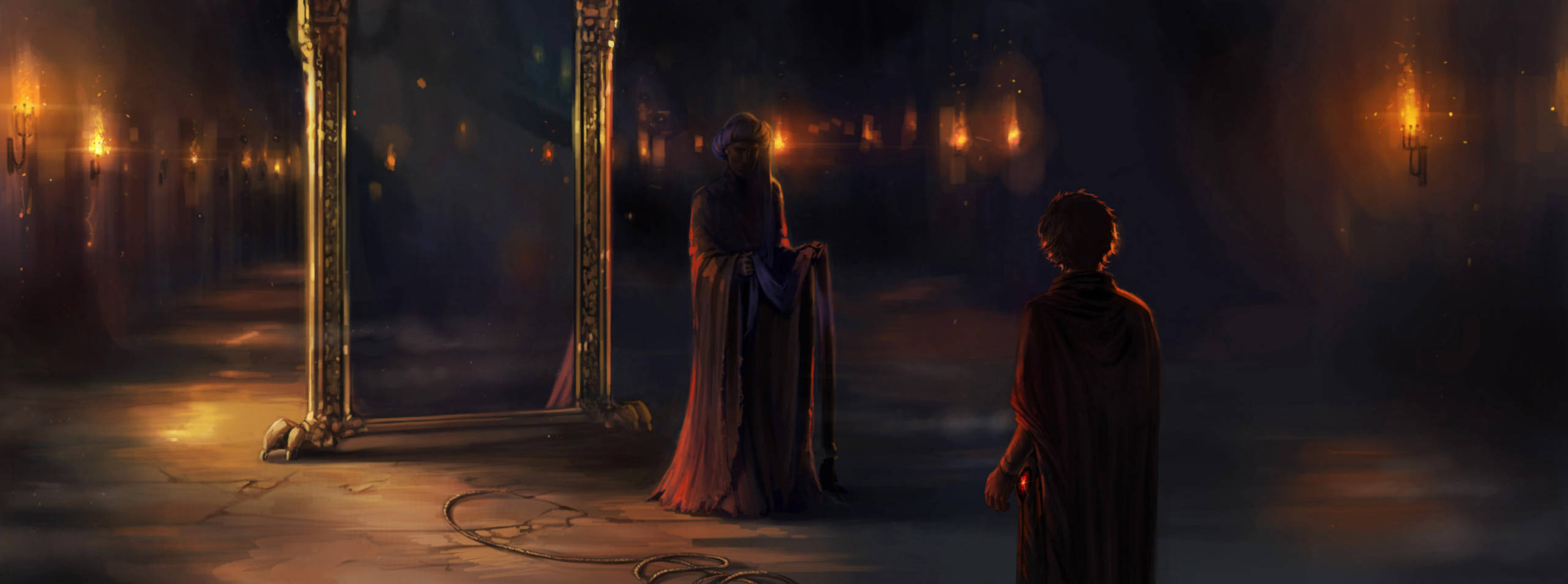Quirrell set out deliberately to find whatever remained of the Dark wizard, partly out of curiosity, partly out of that unacknowledged desire for importance. At the very least, Quirrell fantasised that he could be the man who tracked Voldemort down, but at best, might learn skills from Voldemort that would ensure he was never laughed at again.
Though Hagrid was correct in saying that Quirrell had a ‘brilliant mind’, the Hogwarts teacher was both naive and arrogant in thinking that he would be able to control an encounter with Voldemort, even in the Dark wizard’s weakened state. When Voldemort realised that the young man had a position at Hogwarts, he took immediate possession of Quirrell, who was incapable of resisting.
While Quirrell did not lose his soul, he became completely subjugated by Voldemort, who caused a frightful mutation of Quirrell’s body: now Voldemort looked out of the back of Quirrell’s head and directed his movements, even forcing him to attempt murder. Quirrell tried to put up feeble resistance on occasion, but Voldemort was far too strong for him.
Quirrell is, in effect, turned into a temporary Horcrux by Voldemort. He is greatly depleted by the physical strain of fighting the far stronger, evil soul inside him. Quirrell’s body manifests burns and blisters during his fight with Harry due to the protective power Harry’s mother left in his skin when she died for him. When the body Voldemort and Quirrell are sharing is horribly burned by contact with Harry, the former flees just in time to save himself, leaving the damaged and enfeebled Quirrell to collapse and die.
Author’s note
I saw Quirrell as a gifted but delicate boy, who would probably have been teased for his timidity and nerves during his school life. Feeling inadequate and wishing to prove himself, he developed an (initially theoretical) interest in the Dark Arts. Like many people who feel themselves to be insignificant, even laughable, Quirrell had a latent desire to make the world sit up and notice him.
Quirinus was a Roman God about whom there is not much information, although he is commonly associated with war – a clue that Quirrell is not quite as meek as he appears. ‘Quirrell’, which is so nearly ‘squirrel’ – small, cute and harmless – also suggested ‘quiver’, a nod to the character’s innate nervousness.







